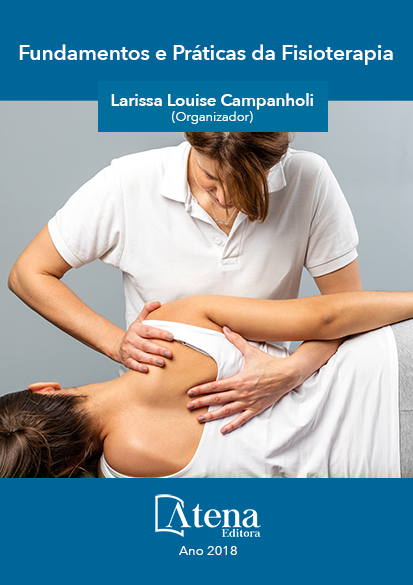
A DIFERENÇA DA MONITORIA ENTRE METODOLOGIAS ATIVA E TRADICIONAL NO CURSO DE FISIOTERAPIA - RELATO DE EXPERIÊNCIA
INTRODUÇÃO: A monitoria é
um instrumento de ensino utilizada nos
cursos de graduação, por meio de trocas de
experiências pedagogicas entre acadêmicos,
facilitar a comunicação entre teoria e prática,
além de promover melhor relação entre
os docentes e discentes contemplando
efetivamente a integração curricular em
diversos aspectos. OBJETIVOS: Elucidar a
diferença na experiência metodológica de
ensino do monitor estando inserido em dois
projetos pedagógicos no curso de fisioterapia,
um com metodologia tradicional e outro com
metodologia ativa. METODOLOGIA: Estudo
descritivo, referente à vivência da monitoria em
2015 (monitorada com metodologia tradicional)
e 2016 (monitorando com metodologia ativa).
Foi realizado acompanhamento presencial
com docente e/ou discentes, no eixo
morfofuncional. Realizou-se monitoria com
atividades de acompanhamento e auxílio ao
docente, plantão de dúvidas, planejamento de
material para revisão semanal, entre outros.
RESULTADOS: Na metodologia tradicional os
discentes sentem dificuldades para estudar e
compreender conteúdos, portanto a figura do
monitor auxilia nesse aprendizado, bem como
nas dúvidas da disciplina monitorada e revisões
de conteúdos. Já com as metodologias ativas
os discentes foram participativos, cumprindo
as atividades propostas. Ou seja, os alunos
são mais proativos, mesmo tendo dificuldades
de adaptação nesta nova metodologia.
CONCLUSÃO: Fora observado que em ambas
as metodologias o monitor é fundamental
para facilitar a aprendizagem. Porém existe
diferença entre as vivências, pois a monitoria
na metodologia ativa permite apenas que o
monitor incentive os alunos a buscar e construir
o conhecimento. Enquanto na metodologia
tradicional o monitor não possui restrição.
A DIFERENÇA DA MONITORIA ENTRE METODOLOGIAS ATIVA E TRADICIONAL NO CURSO DE FISIOTERAPIA - RELATO DE EXPERIÊNCIA
-
DOI: atena
-
Palavras-chave: Monitoria, Metodologia Ativa, Metodologia Tradicional, Aprendizagem
-
Keywords: Monitoring, Active Methodology, Traditional Methodology, Learning
-
Abstract:
INTRODUCTION: Monitoring
is an educational tool used in undergraduate
courses, through exchanges of pedagogical
experiences among academics, facilitating the
communication between theory and practice, as
well as promoting a better relationship between
teachers and students, effectively considering curricular integration in several aspects
. OBJECTIVES: To elucidate the difference of methodological teaching experience of
the monitor being inserted in two pedagogical projects in the physiotherapy course, one
with traditional methodology and another as active methodology. METHODOLOGY:
Descriptive study, referring to the experience of monitoring in 2015 (monitored with
traditional methodology) and 2016 (monitoring with active methodology). It was carried
out face-to-face attendance with teachers and / or students, in the morphofunctional
axis. Monitoring was carried out with follow-up activities and assistance to the teacher,
questioning, planning of material for weekly review, and others. RESULTS: In the
traditional methodology the students feel difficult to study and understand contents,
therefore, the monitor assists in learning, as well as helps in doubts of the monitored
discipline and revisions of contents. With the active methodologies the students were
more participative, fulfilling the proposed activities. That is, students are more proactive,
even though they have difficulties adapting to this new methodology. CONCLUSION:
It was observed that in both methodologies the monitor is fundamental to facilitate
learning. However, there are a differences between the experiences, since monitoring
in the active methodology only allows the monitor to encourage students to seek
and build knowledge. While in the traditional methodology the monitor has not any
restrictions.
-
Número de páginas: 15
- Alessandra Aglaise Melo dos Santos


